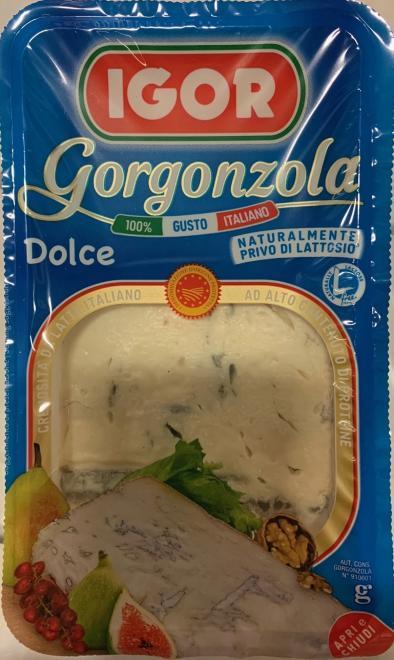Cheese Recalled Over Listeria Contamination, Investigation Underway
Gorgonzola fans in Canada might want to hold off on eating their latest purchase. Igor recalled its gorgonzola cheese last week because of possible listeria contamination. Eating food contaminated with Listeria monocytogenes can lead to a serious infection, especially among pregnant women, adults 65 or older, and those with weakened immune systems.
The recall covers Igor gorgonzola mild ripened blue-veined cheese in 350g packages, according to a notice published on the Canadian Food Inspection Agency's website on Dec. 8. The affected product's UPC is 8 021398 400069 and has a Best Before date of "2023/FE/01" and lot number "2777001." The products were sold in Ontario and Quebec.

The recall began after CFIA test results came in, but there have been no reported illnesses linked to the issue. The CFIA has launched an investigation, which could lead to other recalls. The agency is now working with the industry to make sure recalled products are no longer being sold.
Consumers should not eat recalled products. If you get sick eating the cheese, you should contact your healthcare provider. Recalled products should be thrown out or returned to the place of purchase for a full refund.
Consumers who eat products tainted by Listeria monocytogenes bacterium could get listeriosis, a serious infection, according to the U.S. Centers for Disease Control and Prevention. The infection can affect pregnant women and their newborns, adults over 65, and people with weakened immune systems. Symptoms of listeria infection include fever, headache, stiff neck, confusion, loss of balance, seizures, and flu-like symptoms. Soft cheeses made with unpasteurized milk are among the most likely foods to be contaminated with listeria.
There have been recent recalls in the U.S. involving cheese possibly contaminated by listeria. In late September, Old Europe Cheese, Inc. of Benton Harbor, Michigan expanded a recall of Brie cheeses. The products had best-by dates through Dec. 14 and were distributed to stores nationwide between Aug. 1 and Sept. 28. The recall began after an environmental audit of 120 samples showed one sample from a factory testing positive. "The strain from that positive case has been linked to 6 cases of Listeriosis dating from 2017 to 2022," the company's statement read. "These cases were not previously linked to this company's products, but Old Europe Cheese decided to issue this voluntary recall in order to avoid any risk to their customers."
0comments